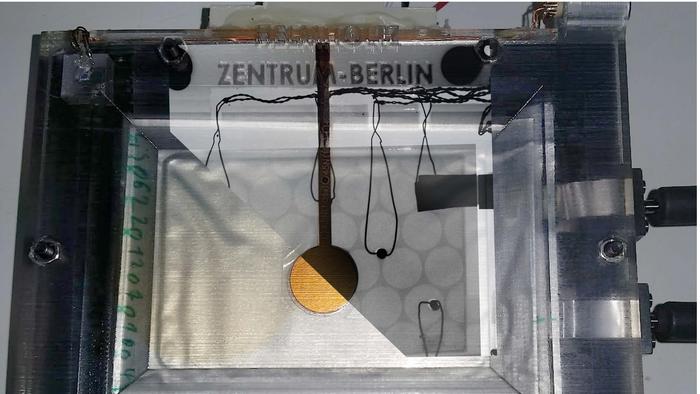A revolutionary development in the realm of battery technology has emerged from a collaborative effort between the Helmholtz-Zentrum Berlin (HZB) and the Fraunhofer Institute for Material and Beam Technology (IWS) in Dresden. This innovative study has brought to light new insights into lithium-sulfur pouch cells, a promising alternative to conventional lithium-ion batteries. Recently published in the highly regarded journal Advanced Energy Materials, this research underscores the potential of lithium-sulfur technology to not only meet rising energy demands but also to do so sustainably, leveraging abundant raw materials.
Lithium-sulfur batteries are garnering increasing attention due to their remarkable advantages over traditional lithium-ion batteries. The primary ingredient in lithium-sulfur batteries, sulfur, is plentiful and inexpensive, offering a significant reduction in lifecycle costs compared to cobalt and nickel, which are critical for lithium-ion technology. Furthermore, lithium-sulfur batteries possess incredibly high specific energy densities, with prototype cells capable of reaching up to 500 Wh/kg — a staggering improvement that nearly doubles the energy storage capacities of current lithium-ion counterparts, making them ideal candidates for mobile and stationary energy storage solutions.
Despite their considerable advantages, lithium-sulfur batteries are hampered by their susceptibility to degradation processes that significantly affect their performance and lifespan. The complexity of charge and discharge cycles leads to the dissolution of polysulfides and other sulfur phases on the lithium electrode. The researchers emphasize that understanding these degradation processes is critical to developing more robust lithium-sulfur technologies and engendering confidence in their commercial viability. Dr. Sebastian Risse, a prominent physicist at HZB and head of operando analysis for batteries, articulates the motivation behind the research: to unravel the complexities causing performance limitations, thereby paving the way for enhanced battery designs.
The HZB’s state-of-the-art pouch cell laboratory serves as a critical birthplace for this study. Focusing on the pouch cell format, which is prevalently utilized in the industry, the laboratory specializes in producing various hydrogen-sulfur batteries tailored to address specific research inquiries and industrial applications. Spearheaded by Prof. Yan Lu, the HZB Institute for Electrochemical Energy Storage (CE-IEES) has been actively orchestrating advancements in lithium-sulfur battery technology. Through their project, dubbed “SkaLiS,” they have established comprehensive exploration into these advanced cells, ultimately leading to groundbreaking findings that were shared in Advanced Energy Materials.
What truly sets this research apart is the innovative multimodal setup deployed during analysis. By employing a suite of advanced methodologies such as impedance spectroscopy, X-ray imaging, and temperature distribution measurements, the researchers were able to monitor the intricate behaviors of lithium-sulfur cells during charge and discharge cycles. Each measurement technique provided unique insights that interlinked to create a holistic view of the battery’s performance dynamics. Notably, the study documented the formation of lithium dendrites and elucidated the dissolution and crystallization of sulfur compounds under operational conditions for the very first time.
Phase-contrast radiography using coherent synchrotron light at the BAMline of BESSY II was particularly influential in this research undertaking. This advanced imaging technique provided unparalleled visibility into the morphology of lithium metal, allowing researchers to correlate structural observations with performance data. The ability to track subtle changes within the battery’s internal environment offers a revolutionary understanding of its operational behavior, contributing immeasurably to battery design improvements.
Dr. Rafael Müller, a chemist at HZB and the primary investigator of this research, emphasized the significance of the compelling findings. The research elucidated that the new design approach, developed by the IWS in Dresden, involving a perforated, lightweight cathode current collector, does not compromise cell performance. This promising design strategy might offer pathways toward next-generation lithium-sulfur batteries that are not only lightweight but also efficient.
The implications of this study stretch far beyond academic interest. As researchers bridge the divide between basic science and commercial applications, they open new avenues for technology transfer, especially as demand for high-energy battery systems surges across electric vehicles and renewable energy storage sectors. The findings allow developers to focus on scalable solutions that withstand the rigors of long-term operation without sacrificing performance.
This ambitious investigation lays an impressive foundation for subsequent research pathways. Understanding the mechanisms that influence performance and degradation in lithium-sulfur batteries is imperative for optimizing their deployment in real-world applications. Instead of being seen merely as prototypes, these innovative batteries may soon transition into commercial viability, particularly equipped to meet stringent requirements for efficiency and sustainability.
As the global community continues to grapple with energy challenges, research focused on enhancing battery technologies is vital for paving the way toward a sustainable future. The integration of lithium-sulfur technology in various sectors promises not only to address energy needs but also to shift the current paradigms of energy consumption towards more responsible practices. The findings from HZB and IWS provide a pivotal juncture in battery research, bridging gaps and facilitating developments toward energy solutions of the future.
With a commitment to extending the lifecycle of batteries and improving overall performance, the research makes clear that in-depth investigations into materials science, electrochemical behavior, and innovative design are indispensable. This study exemplifies an irrefutable step forward in the quest to unlock the potential of high-energy battery systems, setting the stage for upcoming innovations in energy storage.
As the industry observes closely the advancements made through such pivotal studies, it is clear that the time for lithium-sulfur technology may be upon us. As the complexities of battery performance continue to be unraveled, industry stakeholders, researchers, and consumers alike can look ahead to a future where sustainable and efficient energy storage solutions are no longer a mere aspiration but an achievable reality.
Subject of Research: Lithium-sulfur pouch cells and their performance insights.
Article Title: Multimodal Operando Analysis of Lithium Sulfur Multilayer Pouch Cells: An In-depth Investigation on Cell Component Design and Performance
News Publication Date: 7-Jan-2025
Web References: http://dx.doi.org/10.1002/aenm.202404256
References: Advanced Energy Materials journal, study findings, and methodologies.
Image Credits: R. Müller/ HZB
Keywords: Lithium sulfur batteries, energy density, electrochemical performance, degradation mechanisms, advanced imaging techniques, sustainable energy, battery technology, technology transfer.




